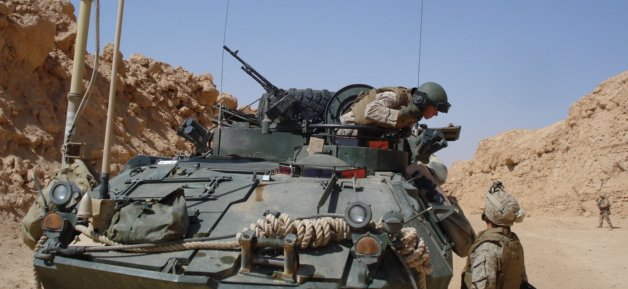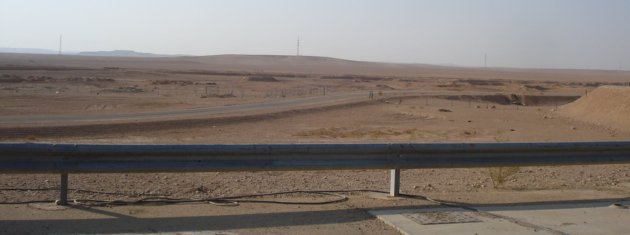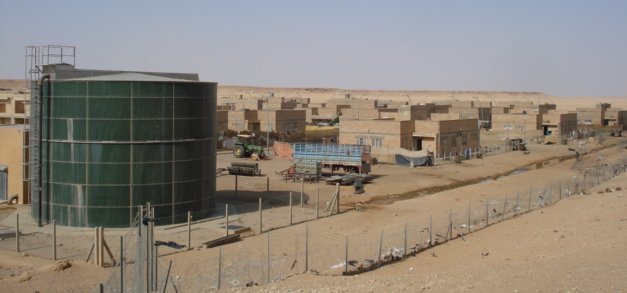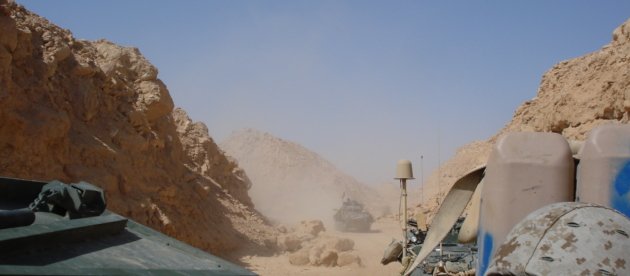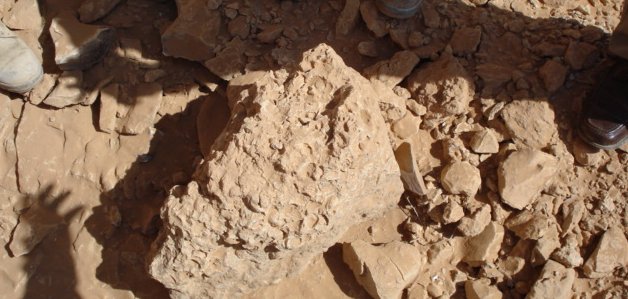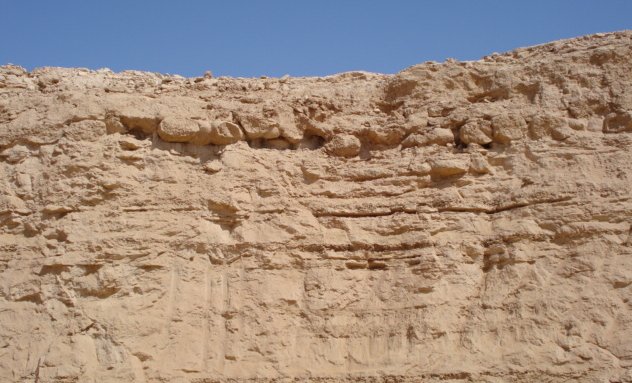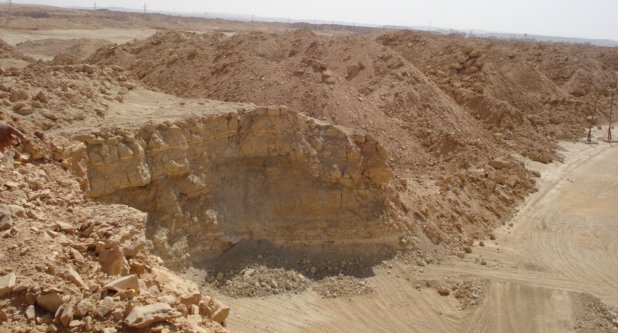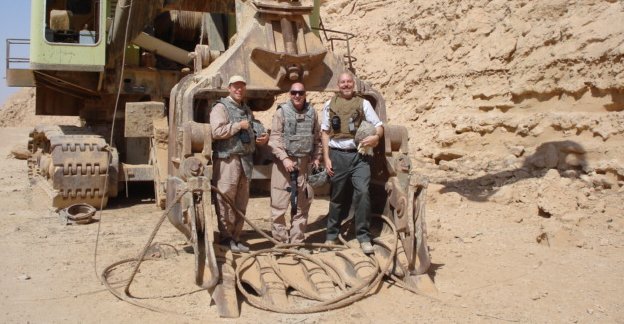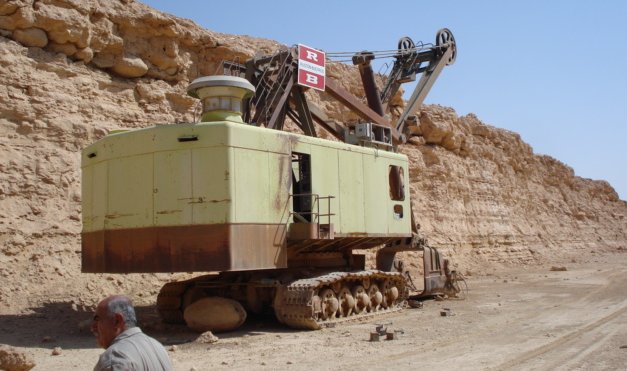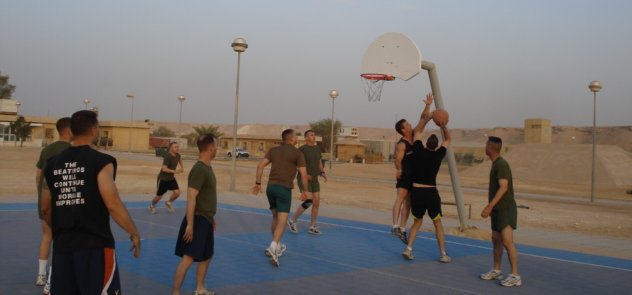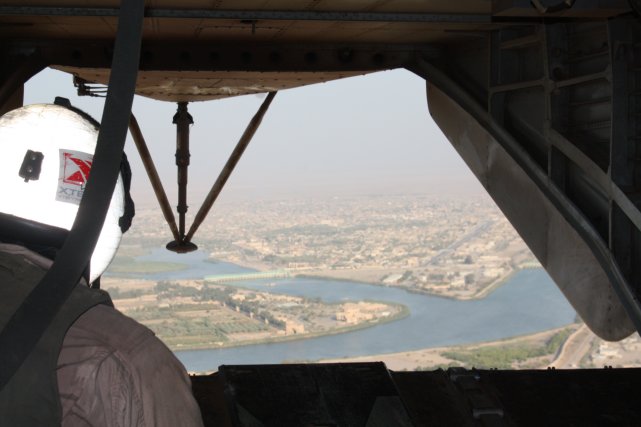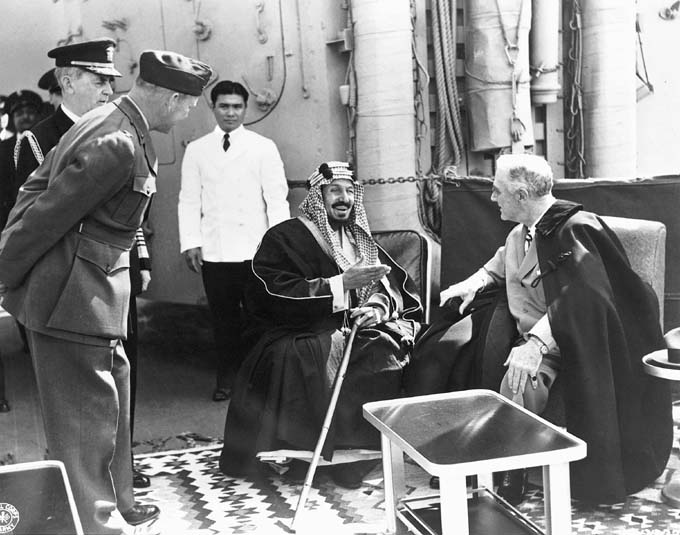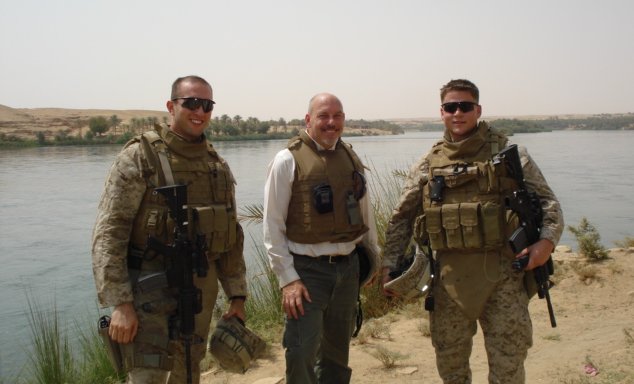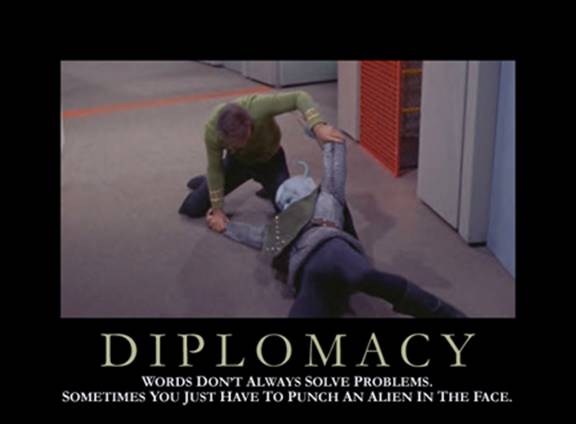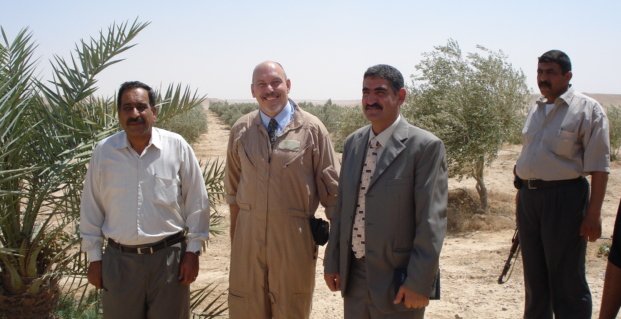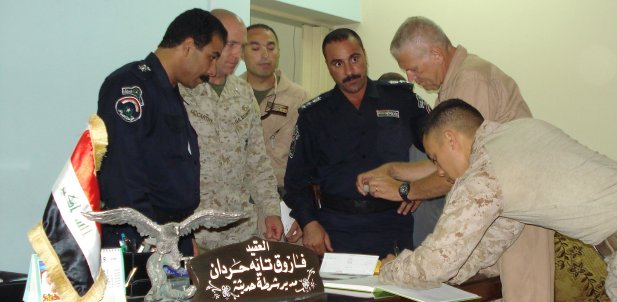Processing Phosphate
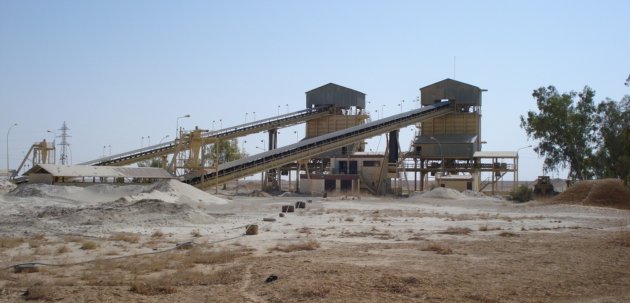
The Plant manager, who has worked the phosphate plant for thirty-three years and been the general manager since 1997, told us that the Phosphate Plant employs roughly 50-60 permanent workers. A full operating work force would be around 200-250 full time employees. He explained how the plant works.
After the phosphate comes from the quarry it is crushed and mixed. The various layers of phosphate have different levels of purity. The Al Qaim phosphate plant requires a purity level of 20%, so the Akashat plant crushes and blends the material to reach that mix. You can see the operation above. This will be loaded onto trains and sent to the Al Qaim Phosphate PlantA short digression: the phosphate quarry and primary processing operation was in business before the phosphate plant in Al Qaim, which got going in 1984. Production there was seriously disrupted by the UN sanctions after 1991 and the 2003 war essentially stopped it from working. It is now operating at around 10%. The plant in Al Qaim is clean and still well kept (which is different from the Akashat operation), but there are serious structural and technology problems. The Phosphate Plant is actually a complex of several facilities. In theory, it produces phosphoric acid, sulfuric acid, ammonia, three types of fertilizer, aluminum fluoride/cryolite, and freon production. The plant is working only at around 10% of capacity and fertilizer is the only product it still makes.
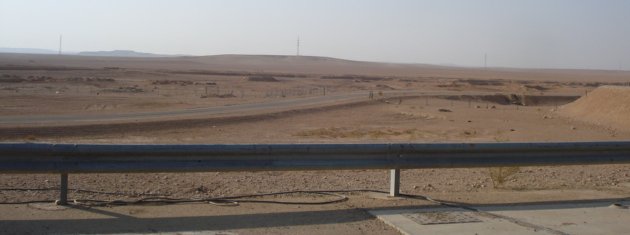
After years of sanctions and neglect, it might make more sense just to build a new “greenfield” factory complex (although around here open fields are khaki.) There is a lot of open space, after all.
Short of War?
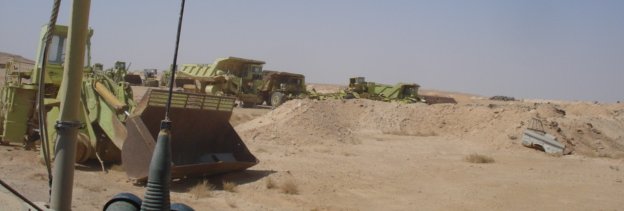
The phosphate quarry was largely undamaged by the Iraq war in 2003, but suffered mightily from UN sanctions in the 1990 until 2003. We drove through ghost parking lots full of buses and heavy equipment. They originally stopped working for want of spare parts. Many of them are now too far gone to repair, even if parts became available. I assume all that scrap must be worth a lot, however.
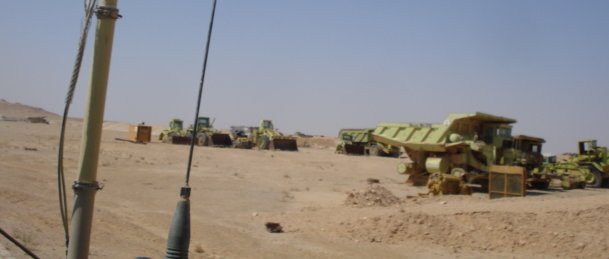
It does make you wonder about sanctions, however. War is brutal business, but in some cases sanctions can cause similar or worse damage. It might be better in the case of this quarry to start completely over. The old equipment will just get in the way.
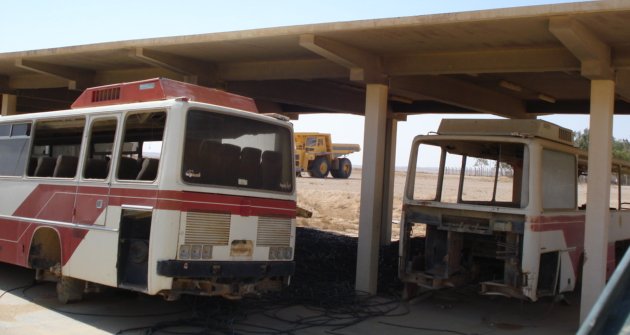
In human terms, I have seen how sanctions caused breakdowns in the health and education systems. People certainly died as the result of the UN sanctions, which prevented medicines and machines from getting to hospitals. The environment was harmed as bad practices spread and new techniques were foreclosed. This is Saddam’s fault. There were ways to get food and medicine in Iraq, but Saddam Hussein abused & corrupted the oil for food program and refused to let the sanctions interfere with his political ambitions and he directed most of the money to his palaces. How do you deal nasty and dangerous dictators short of war when sanctions hurt everybody else more than the bad guys? Sometimes peace hurts more than war.
Model Railroad
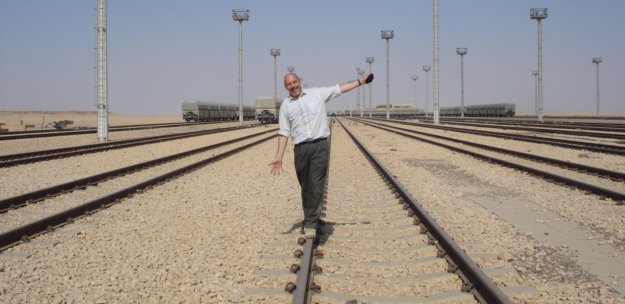
The railroad tracks stretch all the way east to Hadithah where they connect in the south to the Persian Gulf and northward eventually to Europe (remember the Kaiser’s Berlin to Baghdad RR dream). But just west of Akashat they run into the featureless desert and that is the end of them. The station in Akashat is deceptive. It looks like a hub, but a terminus is what it is really. There are plans, actually at this point more like aspirations, to link this line to Syria and Jordan. The director of the phosphate quarry told us that in the early 1980s there were firm plans to connect the rail line with Jordan, but the war with Iran, followed by the war with Kuwait, the war with the UN, UN sanctions and the invasion by CF derailed this project. Saddam’s adventures were not good for business.
The tracks are beautiful. They are well made, well installed and well maintained, or more correctly they require little maintenance out here in the desert w/o significant traffic. Most of the people who ran the railroad are still around. They have the skills to do it again. The sleepers are concrete, each emblazoned with the Iraqi Rail Road logo. The road beds are leveled and supplemented by the right size gravel. You have everything needed to run a railroad, except running trains because there is nothing much to carry.The phosphate quarry sporadically sends a trainload of raw material to Al Qaim. Empty cars return. Even if/when the phosphate and cement operations in Al Qaim are working full out there still won’t be much to carry. The tracks leading nowhere often carry nothing.
Practically, this situation is easily remedied. If these tracks were extended west across Jordan to the Red Sea or the Med, Akashat would be in the middle and this track would carry a prodigious amount of freight. I have heard estimates that containerized cargo going from the Med to Southern Iraq and the Persian Gulf could cut eight days off a trip through the Suez Canal around the Arabian Peninsula, not to mention the simple beginning of a distribution network for the whole of the Middle East. Iraq is shaped like a keystone and it is the geographical keystone of the region. Of course, political would far outweigh engineering challenges in this venture.
As I travel Iraq, I am always bolstered by the energy of people but saddened by the opportunity lost. This country is rich in many ways – water, soil, location, oil – but so much was wasted by dictators and bad choices. We did the right thing in removing Saddam. I am certain of that. I don’t know if the people of Iraq, the region and the world will make the most of the opportunity we have now, but it would be a shame to waste it again.

